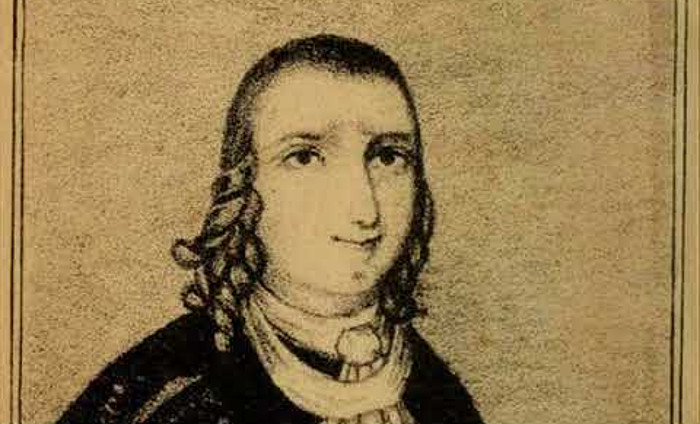
“If x is the population of the United States and y is the degree of imbecility of the average American, then democracy is the theory that x × y is less than y.” — H.L. Mencken, A Mencken Chrestomathy, 1949

“If x is the population of the United States and y is the degree of imbecility of the average American, then democracy is the theory that x × y is less than y.” — H.L. Mencken, A Mencken Chrestomathy, 1949
One other interesting detail from In Your Face, psychologist David Perrett’s 2010 exploration of human attraction. Perrett’s Perception Lab recruited 300 men and 400 women, all of whom had heterosexual partners and had been raised by two parents. They learned that romantic partners tend to look alike — the participants and their partners tended to have similar hair color and similar eye color.
This might be explained by a self-similar preference or narcissism, but on looking deeper into the data Perrett’s team found that the single best predictor of one’s partner’s eye color was the eye color of one’s parent of the opposite sex. If a woman’s mother had blue eyes and her father had brown eyes, she would most likely be partnered with a brown-eyed man. If a man’s mother had blue eyes and his father had brown eyes, his partner most likely had blue eyes. Similarly, the hair color of a man’s mother was the single best predictor of his partner’s hair color. “These results indicate that individuals choose partners who resemble their opposite-sex parent both in eye and hair color.”
(Anthony C. Little et al., “Investigating an Imprinting-Like Phenomenon in Humans: Partners and Opposite-Sex Parents Have Similar Hair and Eye Colour,” Evolution and Human Behavior 24:1 [2003], 43-51.)

belamour
n. a glance or look of love
oeillade
n. an amorous look
leman
n. one beloved
kilig
adj. exhilarated by a romantic experience

After a severe fever in 1776, Rhode Island farmer’s daughter Jemima Wilkinson was reborn as a genderless celestial being who had been sent to warn of the coming Apocalypse. But the general public was too scandalized by the messenger to pay heed to the message. In this week’s episode of the Futility Closet podcast we’ll tell the story of the Public Universal Friend and the prejudiced reaction of a newly formed nation.
We’ll also bid on an immortal piano and puzzle over some Icelandic conceptions.
In studying the attractiveness of human facial features, University of St Andrews psychologist David Perrett found that femininity in female face shape was preferred across cultures and by both men and women. Surprisingly, he found that masculinity in male faces makes them less attractive — in fact, people prefer male faces with a slightly feminized shape. Evaluators said that images of male faces that had been artificially masculinized looked less kind, less emotional, colder, less honest, less cooperative, and less likely to be a good parent. Feminization of male faces had the opposite effect.
This has some basis in real life, where men with more masculine faces show more aggressive and more uncooperative behavior:
Men with masculine face proportions commit more fouls in ice-hockey games and end up with a greater number of time-out penalties than men with more feminine facial proportions. Off the pitch, in an experimental set-up in which players can gain resources, defend them, and steal from others, men with masculine facial proportions choose to retaliate aggressively when other players steal from them and then to steal right back. In contrast, men with feminine facial proportions are more likely to build defences against further infringement. Furthermore, men with high testosterone (that is, those likely to have a masculine facial appearance) have more troubled relationships, and show increased rates of infidelity, violence, and divorce. Masculine males, it seems, are more likely to behave like cads than be good dads.
Men with masculine features do tend to be perceived as stronger and more dominant, and they do tend to be physically strong. Some studies have found a preference for a slight degree of masculinity, but this effect is neither dramatic nor consistent. And “no one has found an overall preference for a high degree of facial masculinity.”
(From Perrett’s 2010 book In Your Face: The New Science of Human Attraction.)

[The British pub] is the only kind of public building used by large numbers of ordinary people where their thoughts and actions are not being in some way arranged for them; in the other kinds of public building they are the audiences, watchers of political, religious, dramatic, cinematic, instructional or athletic spectacles. But within the four walls of the pub, once a man has bought or been bought his glass of beer, he has entered an environment in which he is a participator rather than a spectator.
— Tom Harrisson, The Pub and the People, 1943

In 1952, New Zealander Tom Neale set out to establish a solitary life for himself on a remote island in the South Pacific. In all he would spend 17 years there, building a fulfilling life fending entirely for himself. In this week’s episode of the Futility Closet podcast we’ll describe Neale’s adventures on the island and his impressions of an isolated existence.
We’ll also revisit Scunthorpe and puzzle over a boat’s odd behavior.

Attractive people are more likely to be rated as having higher intelligence, greater loyalty, more dependability, and stronger leadership skills than others, regardless of their actual qualities. Teachers are more likely to rate attractive students as diligent, engaged, hard-working, and intelligent, and students rate attractive teachers as more likable and appealing. Attractive job applicants are more likely to be rated as qualified and competent, regardless of their actual experience or skills. Once hired, attractive employees get more opportunities and higher salaries and are more likely to be rated as more knowledgeable, enthusiastic, and effective. Attractive spokespeople bring greater trust and better evaluations to a product, attractive political candidates are overwhelmingly more likely to be elected, and jurors are less likely to believe that an attractive person is guilty of a crime.
In the United States, physically attractive people are thought to be smarter, warmer, happier, healthier, more sociable, less lonely, and less anxious than others. They’re less likely to be identified as psychopaths or mentally unbalanced, and they’re thought to have better prognoses in the face of physical or psychological problems.
These expectations can fulfill themselves. For example, attractive people haven’t actually been found to be more intelligent than unattractive people, but they do tend to achieve more: “Since attractive people are perceived to have superior intelligence, they are likely given more opportunities, more support, and more encouragement, all prerequisites for short- and long-term success.”
(Rachelle M. Smith, The Biology of Beauty: The Science Behind Human Attractiveness, 2018.)
Every year since 1991, a panel of German linguists has identified a term that violates human rights or infringes democratic principles:
1991: ausländerfrei (“free of foreigners”)
1992: ethnische Säuberung (“ethnic cleansing”)
1996: Rentnerschwemme (“flood of senior/retired citizens”)
1999: Kollateralschaden (“collateral damage”)
2005: Entlassungsproduktivität (“layoff productivity,” a surge in productivity induced by laying off workers)
2008: notleidende Banken (“suffering/needy banks”)
2014: Lügenpresse (“lying press”)
2019: Klimahysterie (“climate hysteria”)
The terms are usually German, but not always. In 1994 the word was peanuts, after Deutsche Bank’s chairman used that term to refer to 50 million Deutsche Marks.

Carved into a hill in Dorset is the Cerne Abbas Giant, a 55-meter nude figure that carries a club and is rather obviously male. In November 1932 the Home Office received a letter from local resident Walter L. Long on which he’d sketched the giant. He wrote:
If this sketch offends, please remember that we have the same subject, representing a giant 27,000 times life size, facing the main road from Dorchester to Sherborne, and only some quarter to half a mile distant.
With the support of the Bishop of Salisbury, another Bishop, and representatives of other religions, I appealed to the National Trust, but this society exists only to preserve that which is entrusted to it, and consequently does not consider the obscenity of this figure is a matter on which I can act. In this figure’s counterpart in Sussex, Sex has been eliminated altogether; the other extreme.
Were the Cerne Giant converted into a simple nude, no exception would be taken to it. It is its impassioned obscenity that offends all who have the interest of the rising generation at heart, and I, we, appeal to you to make this figure conform to our Christian standards of civilization.
Archival records show that the matter was referred to one S.W. Harris, who debated what would satisfy Mr. Long. Should they call the police? Plant some strategic fig trees? He noted that the figure had stood without complaint for two or three thousand years, “or from 1/3 to one half the Biblical age of the Earth.” At last he sent this reply:
With reference to your letter of 14th November, I am directed by the Secretary of State to say that he has caused inquiry to be made and finds that the prehistoric figure of which you complain — the Giant of Cerne — is a national monument, scheduled as such, and vested in the National Trust. In the circumstances the Secretary of State regrets that he cannot see his way to take any action in the matter.
Seven years later Harris shared Long’s letter with a colleague, who wrote of the giant, “He is an old scandal, but he has stood there and scandalised for thousands of years and I hope [he] will do so for thousands more.”
(National Archives, In Their Own Words: Letters From History, 2016.)